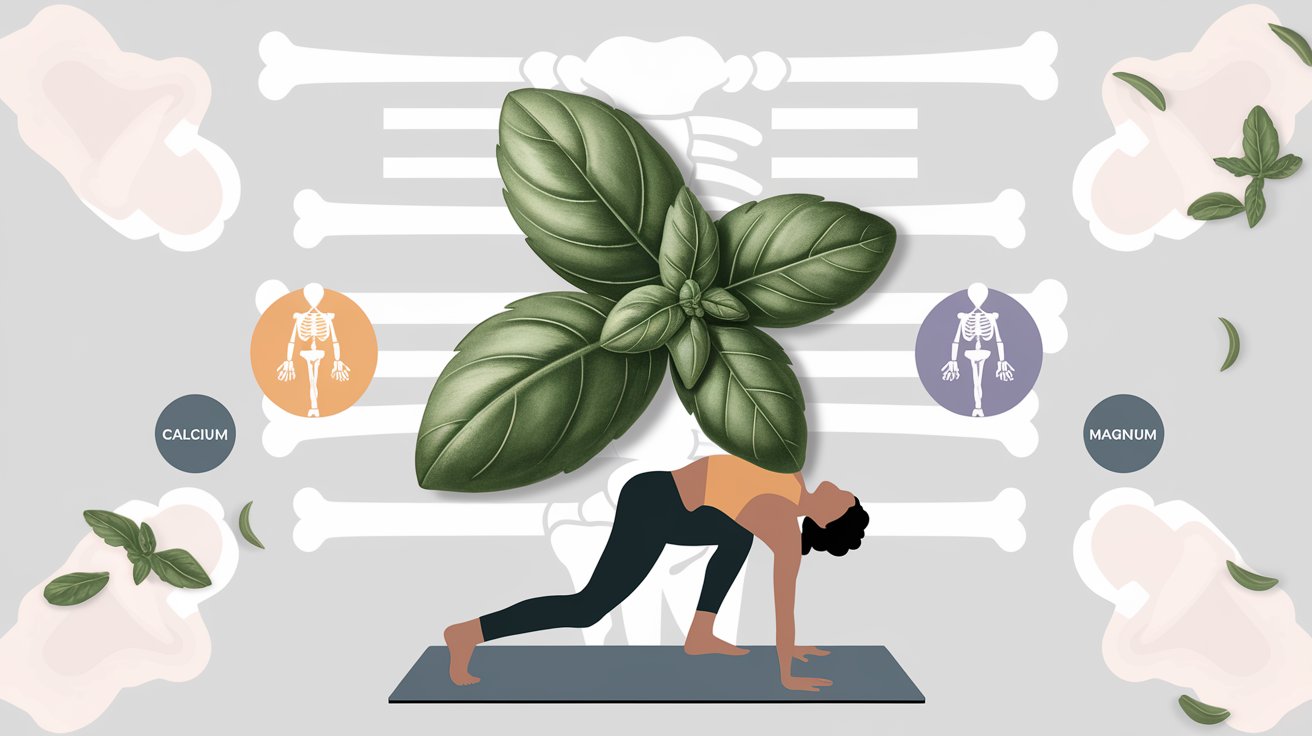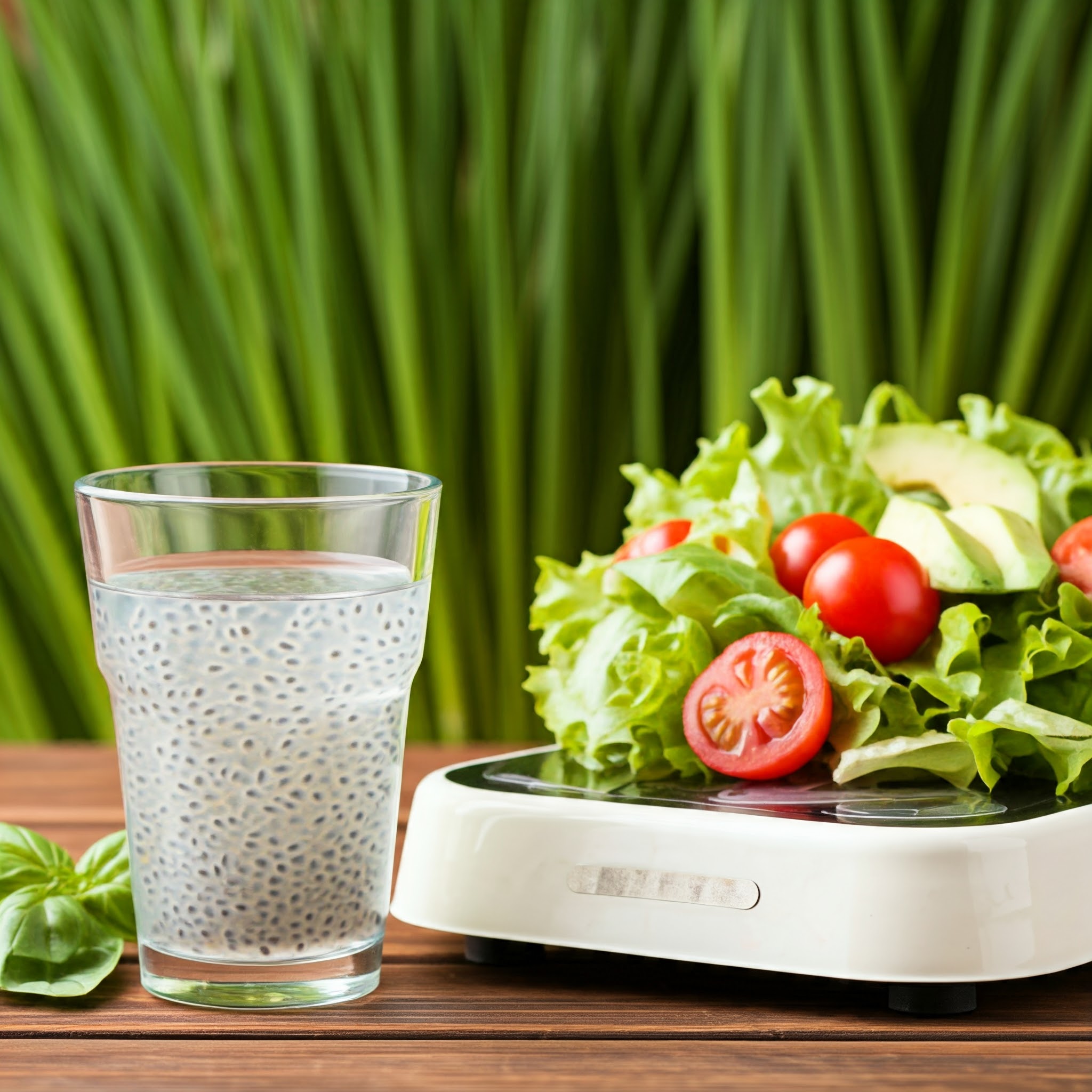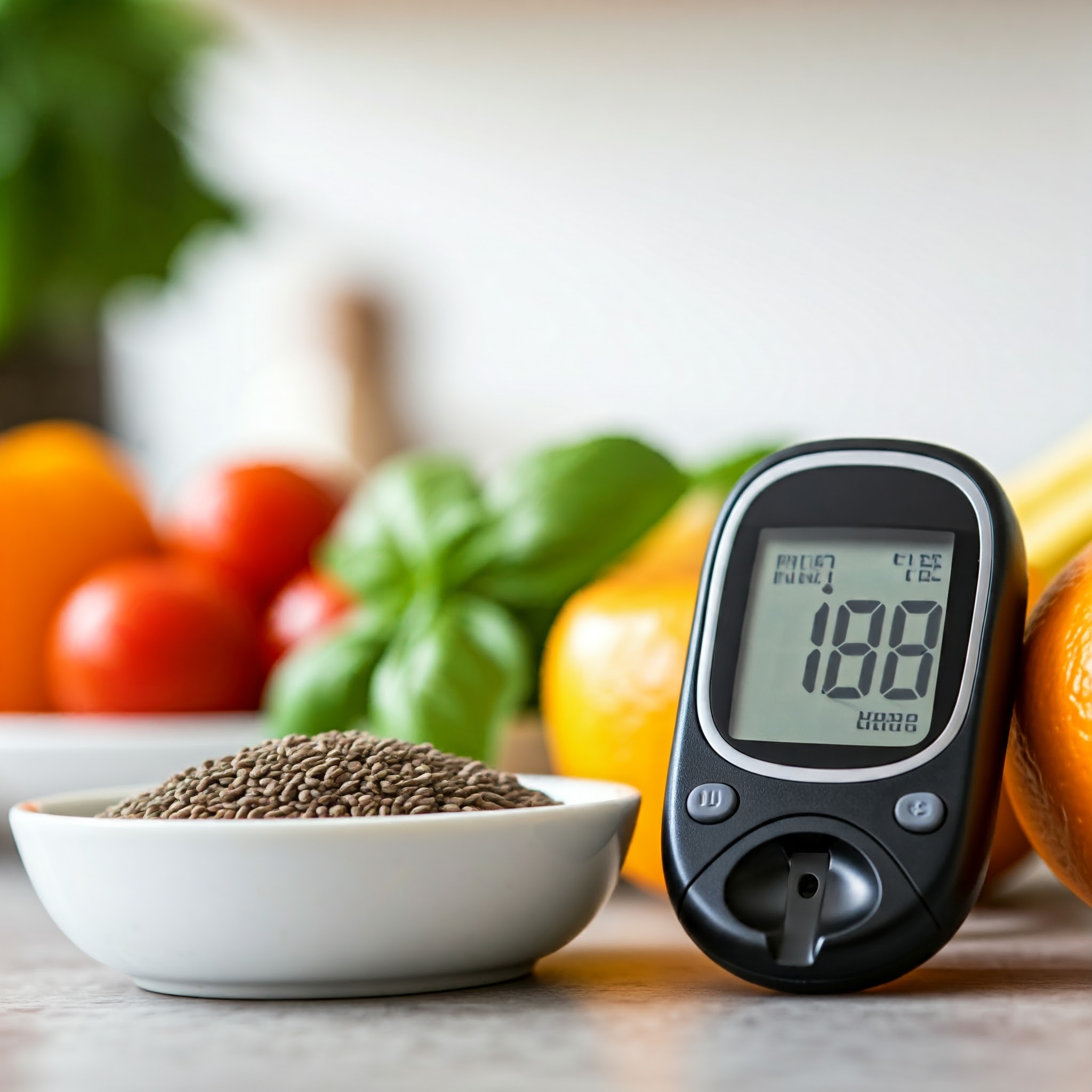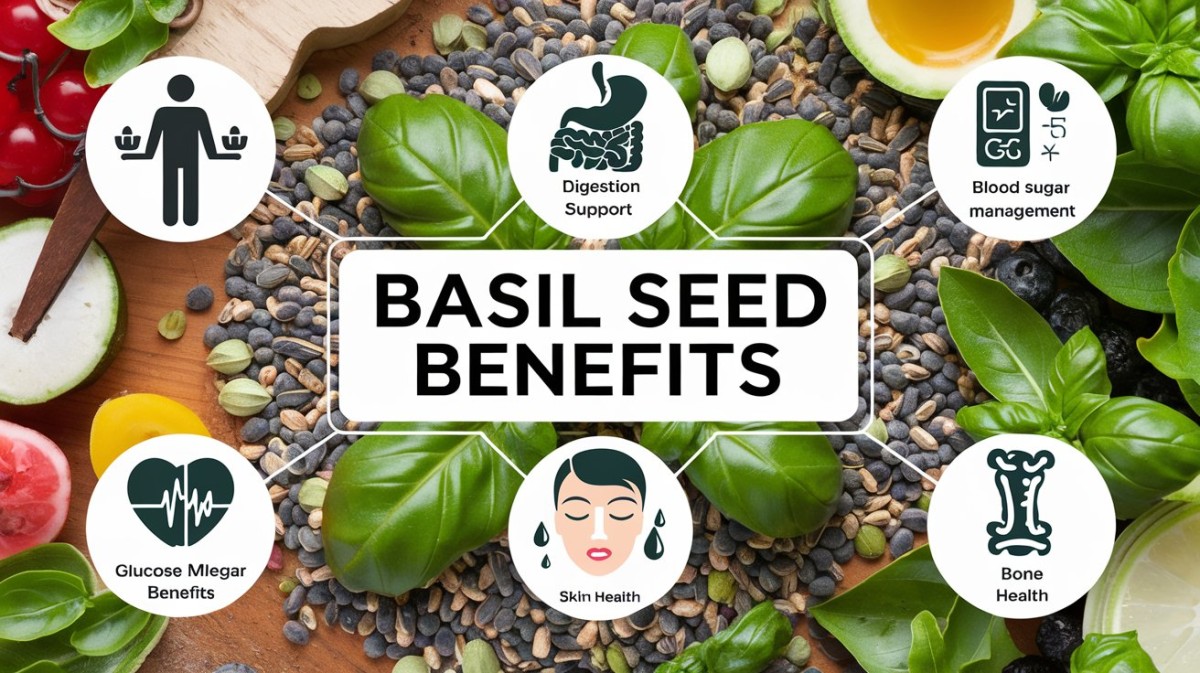What Are Basil Seeds?
Basil seeds are the small black seeds of sweet basil plant, scientifically referred to as Ocimum basilicum and commonly imparted in Indian, Ayurvedic and Southeast asian foods. Packed with lots of nutrients that may include fiber, omega three fatty acids, vitamins and minerals, these seeds are a great supplement to any meal.
After absorbing water, basil seeds get a slimy coating and are used in liquid dishes such as beverages, puddings and smoothies, in the same way chia seeds do.
Nutritional Profile of Basil Seeds
Before diving into the health benefits, let’s take a look at the nutritional content of basil seeds.
Nutrient |
Per 1 Tbsp (13g) Serving |
| Calories | 57.5 |
| Fiber | 7g |
| Protein | 2g |
| Omega-3 Fatty Acids | 1.2g |
| Carbohydrates | 7g |
| Calcium | 15% of Daily Value (DV) |
| Iron | 10% of Daily Value (DV) |
| Magnesium | 10% of Daily Value (DV) |
Basil seeds are low in calories and high in essential nutrients like fiber and omega-3 fatty acids. These qualities make them ideal for people looking to lose weight, control blood sugar levels, and boost digestive health.
Health Benefits of Basil Seeds
1. Supports Weight Loss
 Basil seeds are good for any sort of diet especially the weightloss type as they contain few amounts of calories but contain generous portions of fiber. Basil seeds are less in fat and calorie content, the soluble fiber in the seeds gives you a feeling of satiety thus helping you eat less food. When soaked the seeds swell, which elevates the feeling of satiety in addition to all the other benefits contained in the dish.
Basil seeds are good for any sort of diet especially the weightloss type as they contain few amounts of calories but contain generous portions of fiber. Basil seeds are less in fat and calorie content, the soluble fiber in the seeds gives you a feeling of satiety thus helping you eat less food. When soaked the seeds swell, which elevates the feeling of satiety in addition to all the other benefits contained in the dish.
How to use: You should simply add soaked basil seeds to the water you drink, your daily smoothie or yogurt in order to enjoy the advantages of weight loss.
2. Aids in Digestion
Occurring with basil seeds is associated with high fiber level that is useful in enhancing the health of the digestive system. They possess a mild laxative property by which foods having these ingredients qualify to ease constipation and facilitate the passage of foods that contain them through the intestines.
How to use: Drink a glass of water mixed with soaked basil seeds to relieve digestive issues and promote gut health.
3. Helps Manage Blood Sugar Levels
 The fiber present in basil seeds helps in reducing the rate at which carbohydrates are absorbed into the body which helps in avoiding fluctuating blood sugar levels. This makes them a perfect fit for introduction into a diet plan for anybody who is living with type 2 diabetes.
The fiber present in basil seeds helps in reducing the rate at which carbohydrates are absorbed into the body which helps in avoiding fluctuating blood sugar levels. This makes them a perfect fit for introduction into a diet plan for anybody who is living with type 2 diabetes.
How to use: Infuse the basil seeds into low sugar meals, such as smoothies or salads, to get a constant flow of energy without the glucose rush.
4. Rich in Omega-3 Fatty Acids
Basil seeds are high in Omega 3 that is vital for heart and brain health and lessening inflammation within the body. Omega-3s are especially important for maintaining good mental health and preventing depression and anxiety in particular.
How to use: A good source of healthy fats is basil seeds; you can blend them in with your morning smoothie.
5. Promotes Skin Health
Due to its anti-oxidant vitamins basil seeds can also aid in maintaining good skin and glowing skin. The seeds are loaded with flavonoids and other antioxidants that ensure that free radicals are fought off, skin inflammation is cut and the aging process is slowed down.
How to use: To get a natural skin supplement soak basil seeds and take them routinely. They also can be added to your breakfast shake or dessert.
6. Boosts Hydration
Basil seeds are good for your skin and for those hot summer days you need to take more fluid. When soaked, swell up hence provide a gelatinous base which assists in the process of cooling down the body as well as providing it with water.
How to use: Use powder form of basil seeds in cold lemonade or coconut water to help you combat the summer heat.
7. Supports Bone Health
The basil seeds also contain large quantities of calcium and magnesium which can help with the healthy development of our bones. Basil seeds are helpful to keep or regain bone strength and avoid the disease osteoporosis if taken continually.
How to use: Eaten in moderation, basil seeds are a good source of calcium and magnesium, you should include in your diet.
How to Incorporate Basil Seeds into Your Diet
 Are you thinking of how you can incorporate basil seeds into your regular diet? Here are some easy ways to make the most of their benefits:
Are you thinking of how you can incorporate basil seeds into your regular diet? Here are some easy ways to make the most of their benefits:
❖ In Water or Juice: With a teaspoon, you can swallow some basil seeds with this water after keeping it in the basin of water for about 15-30 minutes.
❖ Smoothies: For those who like fruits or green smoothies, try to mix one tablespoon of soaked basil seeds in your smoothie.
❖ Desserts: Basil seeds can be added to puddings, parfaits or season yogurt to make a healthy and delicious tasty treat.
❖ Salads: Basil seeds added into salads and dressing will offer you the crunch and nutrient dense component.
Nutritional Profile of Basil Seeds
Conclusion
Basil seeds are nutritionally dense little seeds that can help improve your health in a number of ways. From helping to digest food and lose weight to regulating blood sugar levels and giving you better skin, there cannot be a single excuse of why these little miracles should not be included in our meals. As you are aware you can chew or swallow plain basil seeds with water or use the crushed seeds to add in your smoothies, water, pastries etc. so convenient and tasty!

